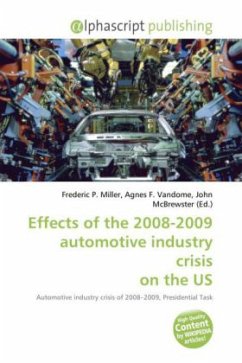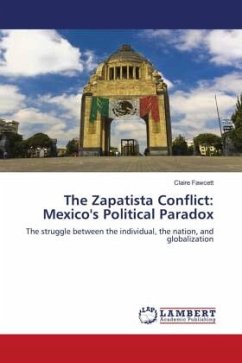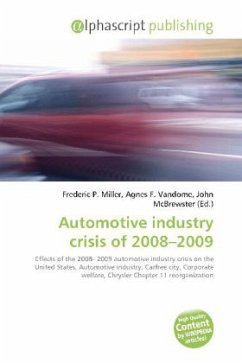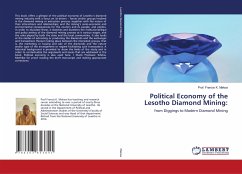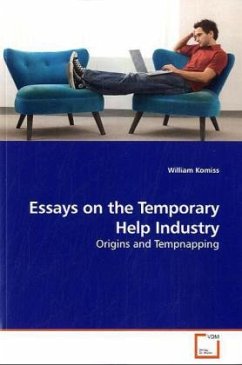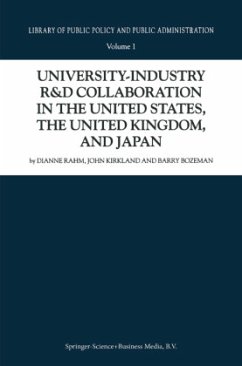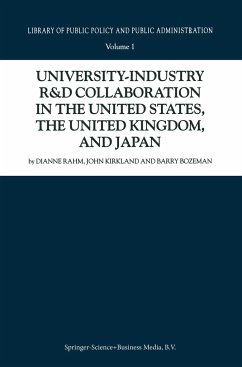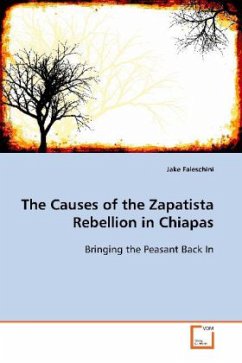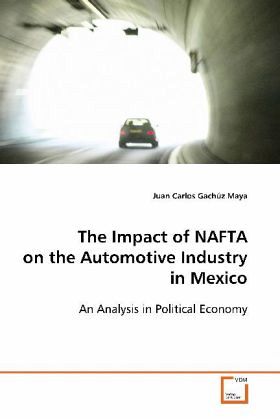
The Impact of NAFTA on the Automotive Industry in Mexico
An Analysis in Political Economy
Versandkostenfrei!
Versandfertig in 6-10 Tagen
52,99 €
inkl. MwSt.

PAYBACK Punkte
26 °P sammeln!
Has NAFTA improved and enhanced the automotive industry in Mexico in terms of economic performance, labour conditions and what control does the Mexican state have over those developments? this is the main question that this research try to answer. It explains that in some exogenous variables (even though there have been marked fluctuations specially in the period [2001-2004]), there are some important positive effects on the automotive industry since the agreement was implemented (regional trade has increased and production and exports in Mexico increased considerably from 1994 to 2000). This ...
Has NAFTA improved and enhanced the automotive industry in Mexico in terms of economic performance, labour conditions and what control does the Mexican state have over those developments? this is the main question that this research try to answer. It explains that in some exogenous variables (even though there have been marked fluctuations specially in the period [2001-2004]), there are some important positive effects on the automotive industry since the agreement was implemented (regional trade has increased and production and exports in Mexico increased considerably from 1994 to 2000). This outcome of NAFTA at the external level, however, contrasts markedly with the effects of the agreement in terms of labour conditions, wages, purchasing power and implications on state autonomy. With the implementation of NAFTA the Mexican dependence on the U.S. automotive market has become stronger, consequently the Mexican state has a much more restricted margin to regulate or implement policies in the sector, at least to the extent to which it was before the signing of NAFTA.



